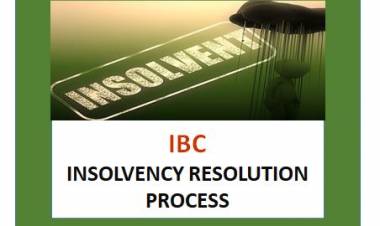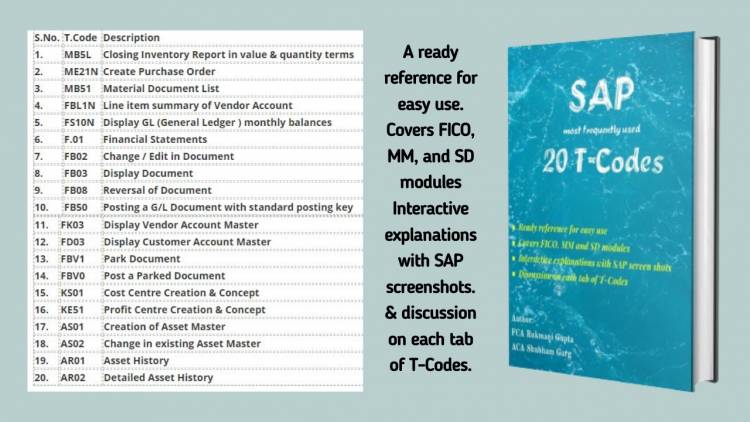15 Most Effective Tax Saving Tips For Entrepreneurs
15 Most Effective Tax Saving Tips For Entrepreneurs
Income Tax
1. Do proper recording of cash expenses, Wisely
If payment of expenses in cash is unavoidable in your business, no worry, you do expenses in cash but keep proper record of that, prepare cash payment vouchers and take signs / thumb impression of receiver on that. (keep in mind various limits of cash transactions like Rs. 2 lakh / Rs. 10K (reduced from earlier limit of 20K) etc.)

2. Deduct TDS always – If required as per Act
Deduct TDS if considering the transaction nature and amount limit it is required to be deducted as per Income Tax Act. If you fail to do so, then such expenses are inadmissible while calculating the profit and increases the tax burden. For example, in a year you have paid Rs 1,50,000/- as professional fees to your CA and forget to deduct tax @ 10% on the same. Then, the whole amount of Rs 1,50,000/- shall be disallowed while calculating the net profit.
3. Take Housing Loan Interest and principal payment benefit
Interest up to Rs. 2 lakhs is allowed under income from house property. Means if you have income from other heads like salary etc, say Rs. 8 lakhs, then you need to pay tax on Rs. 6 lakhs only (8lakh - 2Lakh).
And further to this you are also allowed to claim deduction under section 80C up to Rs. 1.50 lakh for principle amount repaid for housing loan.
4. Correctly calculate Long Term & Short Term Capital Gains
Do proper calculation of long term and short term capital gains. Any capital asset held for more than 36 months is categorized as long term capital asset and on the sale of such asset long term capital gain arises which is taxable @20% (but there are various sections like section Section 54, 54EC, 54F etc. under which you can claim exemption by reinvestment of capital gain / proceeds, explained below). Anything sold within 36 months is categorized as short-term and is taxed at a flat rate of 15%.
But in the case of equity shares or debentures of a listed company, units of UTI, Zero Coupon Bonds, and equity oriented Mutual Funds, instead of 36 months holding period is 12 months.
Note that now amendment has been made in Income Tax Act, according to which, from 1st Jan. 2018, long term capital gain from equity shares is also taxable @10%.
5. Concept of indexation
Generally, peoples are not aware about indexation concept and always remain confused. Indexation is very simple concept based on time value of money, i.e., what is the current value of Rs 100/- is today will not be same after 5 years, it will be reduced.
For example, if you have purchased a house in the year 2002 (April) for Rs 6,75,000/- and now sold it in 2018 (June) for Rs 25,00,000/-. Now, it’s a long-term capital gain and as a laymen you will be worried that you need to pay tax (@20%) on Rs. 18,25,000/- (25,00,000/- - 6,75,000/-), But in fact that’s not true. Each year a Cost Inflation Index (CII) is announced by Finance Ministry which is used to calculate the indexed cost (which is 105 for FY 2002-03 and 280 for FY 2018-19). You need to multiply the original cost of asset i.e. rs. 6,75,000/- with CII of the year of sale and divided by CII of the year of purchase to arrive at the indexed cost of acquisition. In this case, the indexed cost of acquisition shall be Rs 18,00,000/- (6,75,000 x 280 / 105). So actual long-term capital gain is of Rs 7,00,000/- (25,00,000 – 18,00,000) not 18,25,000/-
6. Investment in Mutual Fund SIP
Read carefully, every instalment of investment in MF SIP is considered as a separate investment. So after 12 months the first instalment you have paid has only exceeded a period of 12 months and other 11 are still short-term in nature, and STT paid capital gain is exempt only if it is long-term. For example, started investing Rs 7500/- a month with effect from 1st July 2014 and by 30th June 2015 you have invested Rs 90,000/-. Now on 1st July 2015, the only amount invested in July 2014 is long term and rest 11 instalments are short-term and hence will attract short-term capital gain at a flat rate of 15%. Hence, always sell your mutual fund units in instalments on FIFO basis to avoid unnecessary tax on short-term capital gains.
7. Take benefit of exemption from capital gain - provided under section 53 to 54H
Sections 53 to 54H have been introduced by Finance Ministry over the years to provide exemption on capital gains if sale proceeds / capital gains realized are invested into assets specified in the respective sections.
For example,
Section 54: Old assets Residential Property and new asset is also residential property. (if purchase then 1 year before or 2 years after the date of sale and if construction then within a period of 3 years from the date of sale / transfer). Note that amount to be reinvested is capital gain not the sale proceeds. Apart from this, if not possible to purchase / construct house before the due date of filing of return in next year, do not forget to deposit the balance amount to be invested in capital gain account.
Section 54EC: Old assets any capital asset (restricted to land or building, form FY 18-19) and new asset is specified bonds like REC, NHAI, PFC & IRFC etc. (locking period is of 5 year) and Note that amount to be reinvested is capital gain not the sale proceeds subject to a cap of maximum Rs. 50 lakhs. And this investment should be made with in a period of 6 months form the date of sale / transfer.
Section 54F: Old assets any capital asset and new asset is residential property. (if purchase then 1 year before or 2 years after the date of sale and if construction then within a period of 3 years from the date of sale / transfer). Note that amount to be reinvested is the sale proceeds not the capital gain. Apart from this, if not possible to purchase / construct house before the due date of filing of return in next year, do not forget to deposit the balance amount to be invested in capital gain account.
8. Take benefit of deductions Under Chapter – VI
a) Life Insurance Premium:
Life Insurance policy along with returns on your money also provide security. And interesting thing is that the premium paid on life insurance of self, spouse and children whether dependent or not, married or not can be claimed under section 80C, subject to a maximum cap of Rs 1,50,000/-.
b) Investment in PPF:
Investment in PPF allows to claim deduction up to Rs 1,50,000/- along with other deductions under section 80C. Interest on fixed deposits with banks are subject to tax, but interest on PPF is even exempt from tax under section 10.
9. Advance Tax instalment should be paid on time:
If your total tax liability is expected to me more than Rs. 10000/- (certain exemptions are their), then you should deposit advance taxes as prescribed in the Income Tax Act. Non-deposit of service tax will result in interest under sections 234A, 234B & 234C, and these interests are to be deposited mandatorily, as the department doesn’t show any leniency in regard to these interests.
10. Avoid paying Interest and Penalty:
Comply with all the prescribed rules and file all the returns like TDS returns etc. on time and avoid to pay hefty Interest and Penalty.
11. Contribution to NPS
This deduction under Section 80CCD(1B) up to Rs 50,000 is only available for contributions to the NPS. The NPS allows you to invest in equity and debt pension funds and build a retirement corpus. You can withdraw it at age 60. And this deduction is over and above deduction of Rs. 1,50,000/- under section 80C.
12. Charity and Donation
You can get a tax deduction on your charitable donations. There is no upper limit but different rules restrict the tax deduction amount available on your charitable contributions. For most donations to NGOs, the limit is 50% of the donated amount and up to 10% of your adjusted total income. NGOs under this section are required to have an 80G certificate for you to be able to claim this deduction.
13. Medical Insurance and Health Check up expenses
You (as an individual or HUF) can claim a deduction of Rs.25,000 under section 80D on insurance for self, spouse and dependent children. An additional deduction for insurance of parents is available up to Rs 25,000, if they are less than 60 years of age. If the parents are aged above 60, the deduction amount is Rs 50,000, which has been increased in Budget 2018 from Rs 30,000.
In case, both taxpayer and parent(s) are 60 years or above, the maximum deduction available under this section is up to Rs.1 lakh.
Example: Mohan’s age is 65 and his father’s age is 90. In this case, the maximum deduction Mohan can claim under section 80D is Rs. 100,000. From FY 2015-16 a cumulative additional deduction of Rs. 5,000 is allowed for preventive health check.
14. Keep some money in your savings account
This is probably the easiest deduction under the Income Tax Act that individuals can claim. Interest on savings accounts is tax free up to Rs 10,000 per year under Section 80TTA. This limit is Rs 50,000 for senior citizens for both FD and savings account interest under Section 80TTB.
15. File your income tax return on time
Main benefit of filing ITR on time is carry forward of losses on business income. Business income losses can be carried forward for a consecutive period of 8 years and hence can be set off against income of next years if the same is not set off against the incomes in the current year. However, the benefits of carrying forward of losses are available only when the income tax return in filed on or before the due date.
And secondly in case of any mistake in return which you notice later on, you can revise only timely filed ITRs.
Therefore always ensure timely filing of income tax return.
 Download APP
Download APP
 P K Gupta
P K Gupta 









































